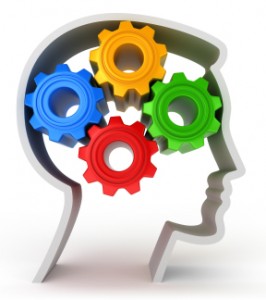Greetings fellow mammals,
 I have consciously ignored “the news” for years, but last week it suddenly bombarded me. A news monitor blared in the elevator of a conference I was attending. The elevator was a slow, the conference was on the 18th floor, and I needed a lot of breaks from the three-day event. So I ended up with a huge dose of murder and mayhem in my ears. Then I got stuck by a CNN monitor at the airport. Normally I avoid these monitors, but I happened to be standing near it when my flight was delayed. I expected to board any minute, so I didn’t move. Five minutes later, global apocalypse filled my head and I was feeling bad. I moved, but it was a strong reminder of the awful feeling I used to get from “the news” before I kicked the habit. I realized that other people are still living with that feeling.
I have consciously ignored “the news” for years, but last week it suddenly bombarded me. A news monitor blared in the elevator of a conference I was attending. The elevator was a slow, the conference was on the 18th floor, and I needed a lot of breaks from the three-day event. So I ended up with a huge dose of murder and mayhem in my ears. Then I got stuck by a CNN monitor at the airport. Normally I avoid these monitors, but I happened to be standing near it when my flight was delayed. I expected to board any minute, so I didn’t move. Five minutes later, global apocalypse filled my head and I was feeling bad. I moved, but it was a strong reminder of the awful feeling I used to get from “the news” before I kicked the habit. I realized that other people are still living with that feeling.
You may be shocked by the thought of ignoring “the news.” (I use quotes because it’s just one slice of news rather than “the” news. Good news is only reported when it fits an editor’s view of what is good.) You may think you must follow “the news” to be a good person. You may think bad guys will rule the universe if you stop monitoring them on “the news.” I believed this until I realized that news is a happy-chemical habit. It gives you a good feeling in the short run but you pay a high price in the long run – like other happy habits. Here’s how it works.
Dopamine
When you find a way to meet your needs, your mammal brain releases the great feeling of dopamine. Information meets your needs when it helps you find rewards and avoid threats. “The news” appeals to that need, but it never actually meets it. News squanders your attention on generalized threats signals that you can’t really act on. You are better off gathering your own information to navigate your own obstacles. You may think it’s more honorable to focus on the pain of others than on your own needs, but the opposite is true. Paralyzing yourself with anxiety does not help you contribute. You can do more when you focus on tangible obstacles in front of you instead of on abstract threats everywhere. And you can get more dopamine by finding needed information than by absorbing the alarm calls of news packagers.
Oxytocin
Our brain looks for safety in a world of potential threats. Oxytocin causes the feeling of safety in the company of those you trust. Animals avoid harm by sticking with a group and listening for their alarm calls. News is a steady stream of alarm calls, and reporters are always suggesting that you put your trust in them. So it’s easy to build social affiliations around today’s headlines. News chat helps ease your mammal brain’s sense of threat and stimulate oxytocin. But it’s a two-edged sword. Your herd mates expect you to share their state of hyper-vigilance. They shun you if you don’t share their sense of threat. You lose the oxytocin that gave you a sense of belonging and told you who to trust. You can stimulate oxytocin in other ways, but people often don’t because the herd created by “the news” is so easily available.
Serotonin
You get a a nice one-up feeling when “the news” critiques people in power. News is a reliable serotonin stimulater because it always puts the common man in the one-up position and finds fault with the powerful. Hostility toward leaders is glorified as a mark of intelligence despite the fact that apes have the same hostility. Apes live with alphas who dominate their food and mating opportunity. Feeling grieved by the man is a primal impulse, not an intellectual triumph. Higher intelligence is needed to see that simple answers do not solve complex problems. When you watch “the news,” you may fantasize about having the power to do the right thing. Your mammal brain loves the power feeling, but your higher intelligence eventually realizes that problems would not vanish if you were running things. You tell yourself you follow “the news” for sophisticated policy analysis, but it rewards you with a feeling of significance akin to adolescent oppositionalism. Alas, you end up feeling trampled and powerless if you rely on “the news” for your sense of importance, because you cannot truly put yourself up by putting others down.
I hate being in the bubble created by “the news.” I have learned to notice it and leave. Creating my own bubble is better than living in the bubble created by journalists.
You can avoid negativity. A program for doing that is described in my new book, Beyond Cynical: Transcend Your Mammalian Negativity. ~ Loretta Breuning
